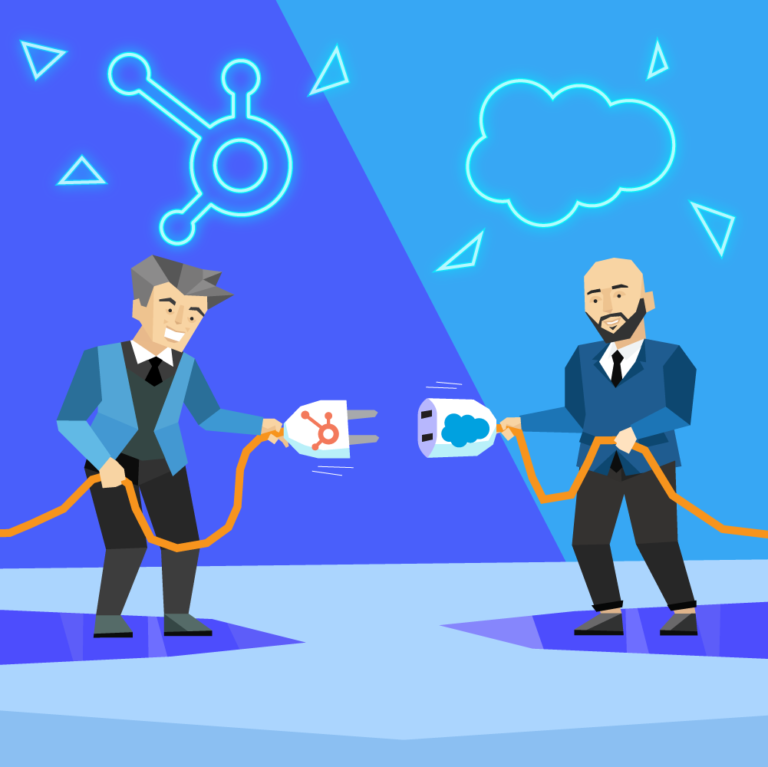How Sales Consulting Aids The Relationship With Marketing

Regardless of the size of an organization, the ultimate goal of most traditional companies is to sell products or services, to bring in revenue and increase the top line of the company.
It is the job of the sales organization to structure and organize the sales process of those products or services. Most enterprises operate to fulfill several sales strategic goals:
- Increasing sales
- Increasing profit margins
- Increasing customer loyalty
- Increasing the top line of the organization
- Increasing product awareness and lead generation
Many aspects of a company’s sales pipeline link up with the marketing pipeline of the company, so any optimization of the sales processes usually requires – and benefits – the optimization of the marketing process(es) as well.
Today, marketing usually includes aligning the strategic marketing goals with the Marketing Funnel. It includes digital marketing, inbound marketing, and content marketing via website assets, social media, and native mobile apps, all to increase qualified leads and increase conversion rates.
At the Bottom of the Funnel section of the classic marketing funnel, the sales process takes over to close the sale and generate revenue for the company. However, despite working for the same purpose, marketing and sales processes are often not integrated and often do not work together seamlessly.
One way an organization can improve and optimize its sales organization and increase its sales processes is by hiring an external sales consulting firm.
Consulting firms are B2B enterprises whose purpose is to leverage their extensive experience and industry knowledge to help your organization run smoother and increase profits. Such firms can help your business reduce sales organizational complexity and minimize overhead and workloads.
Consultants bring in expert advice and industry best practices that can free up internal personnel to focus on more critical tasks.One unique way in which companies can leverage sales consulting firms is by allowing such firms to aid in integrating the relationship between the sales organization and the marketing department, which can optimize both internal systems independently and collaboratively.
The Traditional Divide Between Marketing And Sales
Understanding the approach of integrating sales and marketing systems via the expert guidance of a sales consulting firm, requires first knowing how sales and marketing departments have typically been divided. Despite having the same overarching goal, selling more products or services, the two departments have gone about achieving the goal in two very different ways.
Lead Quantity Versus Quality
While companies often use the Marketing Funnel for the marketing process and the Sales Funnel to visualize the sales pipeline, it can help to utilize both to see where sales and marketing departments diverge.
At the top of the Marketing Funnel and the top of the Sales Funnel, marketing, and sales workflows often focus on different things, such as lead quantity versus lead quality.
Logically, since sales teams are more focused on closing a sale, the sales pipeline often focuses (at the top) on prospects or qualified leads – that is, the quality of the lead is more important since the quality often dictates whether a sale will close.
Note that a lead is an unqualified person who may or may not make a purchase, while a prospect is a qualified lead. Marketing teams often focus more on lead quantity since it usually translates to the marketing teams reaching more people – a number of people which, to the sales teams, may not be relevant since the quality is more important to close the sale. So at the very beginning, the marketing and sales departments are looking for different things.
The Point Of Responsibility Handover
The point at which the sales team takes over the responsibility for closing the sale is often an issue between marketing and sales departments. When using the marketing funnel system as a guide, the BoFu (bottom of the funnel) is usually where the sales teams get involved:
- Top of the Funnel: The ToFu area is where leads are reached and generated and may show a general interest in a web asset such as an e-commerce website, for instance. These leads are searching for a solution to their problem and may read available blogs on a website (as a part of the inbound marketing strategy).
- Middle of the Funnel: The MoFu area is where leads are qualified and converted into prospects. They decide to analyze the company’s products as solutions to their problem.
- Bottom of the Funnel: The BoFu area is where the prospect converts into a customer by deciding to solve their problems with the products that the company offers. This part of the funnel often requires guidance from a sales representative.
The above is telling in that the MoFu area generates a prospect that can be nurtured by marketing teams until they reach the BoFu area. In certain instances, a sales rep may want to deal with the prospect immediately to nurture him/her to the BoFu area and guide the closing of the sale. Thus, the question of who takes over at that area can be a difficult one.
Either the marketing team continues to guide the prospect until the sales team assumes responsibility at the BoFu area, or the sales team begins their Sales Funnel with the prospect, which coincides with the MoFu area of the Marketing Funnel.
Allocating Credit And Blame
If a company does not know where the marketing team definitively hands the responsibility over to the sales team, there might be issues with where the credit – or blame – is due. For instance, if the sales team takes over at the MoFu area of the Marketing Funnel and things go correctly, the marketing team may want to take credit, while the sales team may claim that, due to handling the process from the MoFu stage, the sales team deserves more credit. Likewise, if the same situation occurs – the sales team takes over at the MoFu section of the Marketing Funnel, and things go awry, the sales team may try to blame the marketing teams for not working effectively in the ToFu stage. More often, marketing teams may bring a lead to the BoFu stage, and if things go awry at the direction of the sales teams, the marketing team may blame the sales team, etc.
The Benefits Of A More Cohesive Relationship Between Departments
The above illustrates the many issues that can arise when sales and marketing teams fail to work together in an optimal, streamlined, integrated manner. When that happens, workflows may overlap, teams may not know where their responsibilities lie, and competition between the two departments may lead to a problem that costs the company a sale.
A sales consulting firm can help to strategically integrate the Marketing Funnel and Sales Funnel so that the most appropriate team completes the nurturing of leads and prospects at the appropriate time.
Greater Focus On Shared Goals
A sales consulting firm can help with integrating marketing and sales departmental workflows in a myriad of ways that can optimize the functions of both departments. One way is to allow for greater focus between the departments in which each has a definitive guide on what role they play from the top to the bottom of the integrated MSF (Marketing and Sales Funnel) system.
Such an integrated approach allows both sets of teams to have shared goals, which they can work towards together, thus eliminating unhealthy competition.
Smoother Transition Between MQL And SQL
What marketing teams define as (marketing) qualified leads and what sales teams define as (sales) qualified leads may differ. MQLs are generated at the MoFu level of the Marketing Funnel, while SQLs are the prospects that come out of that process and enter into the sales process/funnel. Integrating the marketing and sales funnels can help businesses create a smoother transition between MQLs and SQLs so that MQLs feed right into the SQL (prospect) system within the Sales Funnel system. Such a smooth transition can optimize the marketing and sales system of your enterprise in a way that can boost sales and generate more qualified leads/prospects.
Greater Use Of Feedback
The integration of the sales/marketing systems within an organization can significantly aid cooperative work between the two departments. Feedback between the two silos can help to further optimize the processes by allowing both sides to see where the other team can improve. For instance, integration may allow the marketing teams to suggest that sales teams interact with the MQL (or SQL) based on data obtained through the marketing process.
Sales teams can likewise give feedback on how marketing teams should interact with leads to convert them into high-quality SQLs. All leads have a higher chance of becoming customers based on data that the sales teams gathered from past experience.
How External Sales Consultants Can Help
Sales consultants have the theoretical knowledge and experience to transform your entire marketing and sales pipeline into a cohesive and integrated system.
Center for Sales Strategy notes that most sales consulting firms help businesses with three major goals:
- Retention of current customers
- Growth of current customers
- Development of new customers
These firms operate based on the Pareto Principle, which indicates that 80 percent of events (in this case, sales) come from 20 percent of customers. Such firms leverage a robust Account List Management System (ALMS), a priority-based, strategic system designed to help businesses manage and organize the “20 percent” of key customers and their interactions with the enterprise (when combined with a robust CRM). Sales consultants also help businesses target new prospects and maintain current customers.
External Third-Party That Isn’t A Member Of Either Department
Since external consultants are not a part of either the marketing or sales departments, they can view problems from the outside. Applying a robust ALMS ensures that both marketing and sales teams identify key customer accounts (the “20 percent”) and optimize their interactions with such prospects and increase sales. With a robust CRM system, sales consultants can help to mold both marketing and sales departments into a single, integrated pipeline based on industry best practices.
No One Department Feels Under Scrutiny
When something goes wrong with a sale, deciding who is to blame may cause one department to feel like they are under scrutiny. But when an external team of consultants take up the job of helping to optimize and train the sales and marketing teams together, no one department feels under scrutiny.
The external team will integrate workflows into a single pipeline, and each silo can provide feedback and assistance when interacting with leads/prospects within the overarching, cohesive Marketing and Sales Funnel.
External Consultants Have Seen It All Before
What makes a consultant a consultant is the fact that he/she has typically seen most issues that businesses deal with daily. The consultant will most likely have a solution to every major and minor problem that your company is dealing with, including issues associated with your sales organization, and both the marketing and sales departments.
This experience, coupled with knowledge of industry best-practices, can allow a sales consultancy firm to optimize your company’s marketing and sales pipeline in a major way.
Work With Your Existing Teams To Build A More Cohesive Sales And Marketing Strategy
Maintaining a competitive edge within any market or region requires a robust, fully-optimized marketing and sales system. A seamless, optimized marketing and sales system may mean integrating the two silos so that the entire Funnel/pipeline helps convert the most qualified prospects into customers at the highest conversion rate possible.
Both internal teams and external consulting teams can play a part in ensuring that a cohesive, integrated sales and marketing strategy is implemented and deployed in such a way as to increase profit margins, sales, and overall revenue.








